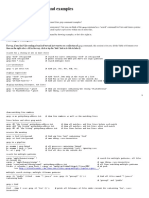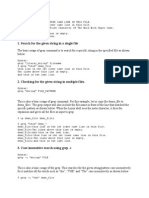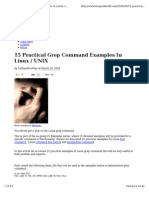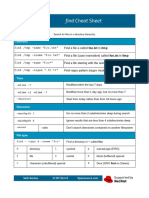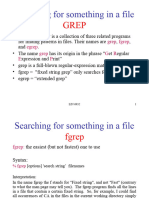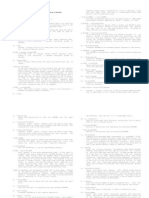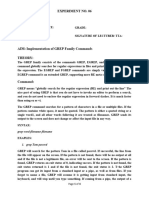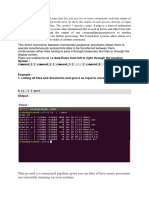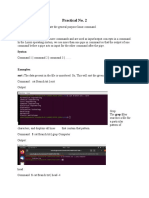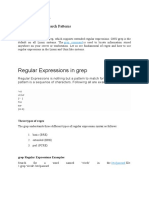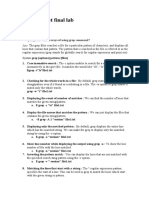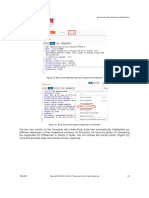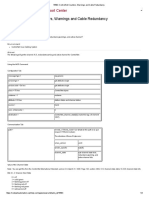0% found this document useful (0 votes)
362 views2 pagesGNU grep Command Guide
This document provides a cheat sheet for using the GNU grep command to find patterns in text files and streams. It lists basic usage such as searching for a pattern in a file, options for ignoring case or inverting matches, and output options. It also covers regular expressions, file selection criteria, and variants for different regex types.
Uploaded by
Vinay KCopyright
© © All Rights Reserved
We take content rights seriously. If you suspect this is your content, claim it here.
Available Formats
Download as PDF, TXT or read online on Scribd
0% found this document useful (0 votes)
362 views2 pagesGNU grep Command Guide
This document provides a cheat sheet for using the GNU grep command to find patterns in text files and streams. It lists basic usage such as searching for a pattern in a file, options for ignoring case or inverting matches, and output options. It also covers regular expressions, file selection criteria, and variants for different regex types.
Uploaded by
Vinay KCopyright
© © All Rights Reserved
We take content rights seriously. If you suspect this is your content, claim it here.
Available Formats
Download as PDF, TXT or read online on Scribd
/ 2


